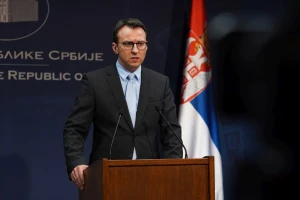- Serbia
Get to know Serbia
- Citizens
Culture and science
Health services
Pension and disability insurance
- Business
Employment
Economy
- Media
- Government
- Contact
Keep in touch
Contact form
Back
Keepin touch
Whether you have a question, comment, suggestion or any problem in the purview of the government, send us your message and we will try to respond as soon as possible. If your problem is not in our purview, we will forward your message to the relevant institution.
Q:
A:
Dialogue to lead to historic reconciliation in Kosovo-Metohija
Belgrade/Chicago,
17 March 2011
Minister of Foreign Affairs Vuk Jeremic said today that the final outcome of the dialogue between Belgrade and Pristina should be a historic peace between Serbs and Albanians, based on true reconciliation, adding that without reconciliation there will be no stable and secure future for that part of Europe.
Jeremic said in his speech “Identity, Reconciliation and the Struggle over Kosovo”, held today at J. Dennis Hastert Centre for Economics, Government and Public Policy at Wheaton College, that in the 17-19 March 2004 pogrom more than 50,000 Kosovo Albanians took part in an organised and well-planned campaign of ethnic cleansing of the Serbs.
We remember the pogrom, we remember a man trying hard to break off the church cross in Podujevo. We remember the mass of people cheering him on his success. But as we remember that, we must keep hope and believe that new dawn will come and dispel the darkness, he said.
Jeremic said that in less than 72 hours 35 churches and monasteries were burnt down, many of which originate from the 14th century or even earlier, thus irrevocably being lost for mankind.
Dozens of people were killed. Hundreds were injured. Thousands of homes and shops were razed to the ground. More than eight thousand Serbs were expelled from their homes, recalled the Minister.
In the wake of the horrible March 2004 pogrom, Serbia managed to muster strength and put an end to the cycle of violence, because hatred bounces back and hits the one who hates, Jeremic stressed, adding that the Kosovo issue is in essence a struggle for identity.
For us, Kosovo is the air we breathe. It is the heart of our culture and the cradle of our most precious relics and holy places. It is a place where hundreds of our ancestors gave their lives for their homeland and freedom, Jeremic observed.
He said that the democratic Serbia opposes the province’s unilateral proclamation of independence with peaceful and diplomatic means and will never, under any circumstances, directly of indirectly, recognize its independence.
The past three years showed that there is no alternative to a compromise solution, which can only be reached through talks and dialogue.
The dialogue which Belgrade and Pristina initiated several days ago is a good start, he said, adding that there will be results if both sides try to find constructive solutions, leading to a mutually acceptable and comprehensive compromise.
He noted that no one can deny the crimes and the horrific claims stated in the report on illicit trade in human organs in Kosovo, which the Parliamentary Assembly of the Council of Europe recently adopted.
We remember the pogrom, we remember a man trying hard to break off the church cross in Podujevo. We remember the mass of people cheering him on his success. But as we remember that, we must keep hope and believe that new dawn will come and dispel the darkness, he said.
Jeremic said that in less than 72 hours 35 churches and monasteries were burnt down, many of which originate from the 14th century or even earlier, thus irrevocably being lost for mankind.
Dozens of people were killed. Hundreds were injured. Thousands of homes and shops were razed to the ground. More than eight thousand Serbs were expelled from their homes, recalled the Minister.
In the wake of the horrible March 2004 pogrom, Serbia managed to muster strength and put an end to the cycle of violence, because hatred bounces back and hits the one who hates, Jeremic stressed, adding that the Kosovo issue is in essence a struggle for identity.
For us, Kosovo is the air we breathe. It is the heart of our culture and the cradle of our most precious relics and holy places. It is a place where hundreds of our ancestors gave their lives for their homeland and freedom, Jeremic observed.
He said that the democratic Serbia opposes the province’s unilateral proclamation of independence with peaceful and diplomatic means and will never, under any circumstances, directly of indirectly, recognize its independence.
The past three years showed that there is no alternative to a compromise solution, which can only be reached through talks and dialogue.
The dialogue which Belgrade and Pristina initiated several days ago is a good start, he said, adding that there will be results if both sides try to find constructive solutions, leading to a mutually acceptable and comprehensive compromise.
He noted that no one can deny the crimes and the horrific claims stated in the report on illicit trade in human organs in Kosovo, which the Parliamentary Assembly of the Council of Europe recently adopted.
-
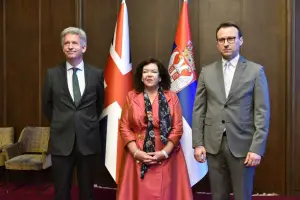 Belgrade, 18 July 2025
Belgrade, 18 July 2025Daily exposure of Serbs in Kosovo and Metohija to Priština’s terror
-
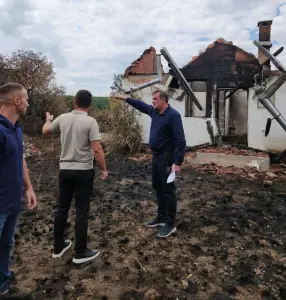 Belgrade, 11 July 2025
Belgrade, 11 July 2025Aid to families in Kosovo and Metohija who suffered damage from fires
-
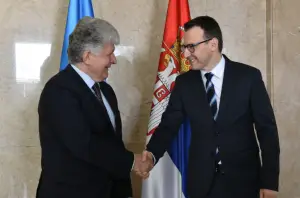 Belgrade, 10 July 2025
Belgrade, 10 July 2025Serbs in Kosovo and Metohija existentially threatened, disenfranchised
-
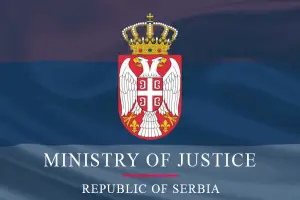 Belgrade, 19 June 2025
Belgrade, 19 June 2025Priština once again gravely violates basic human rights of Serbs in Kosovo and Metohija
-
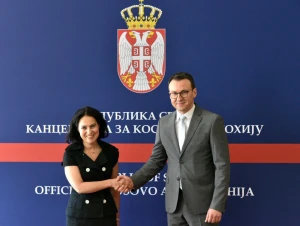 Belgrade, 13 June 2025
Belgrade, 13 June 2025Constant violent acts of Priština against Serbian people in Kosovo and Metohija
-
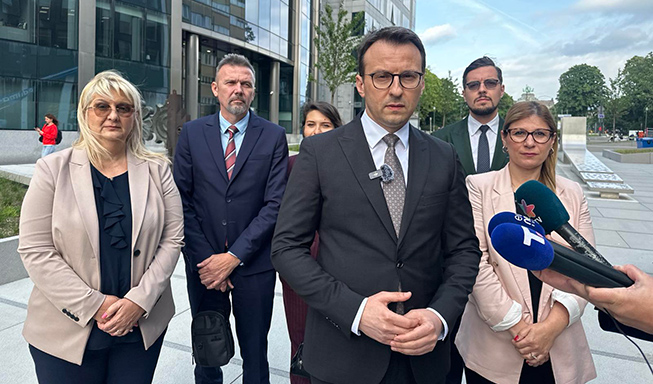 Belgrade/Brussels, 10 June 2025
Belgrade/Brussels, 10 June 2025Formation of Community of Serb Municipalities, de-escalation of situation in north of Kosovo and Metohija a priority
-
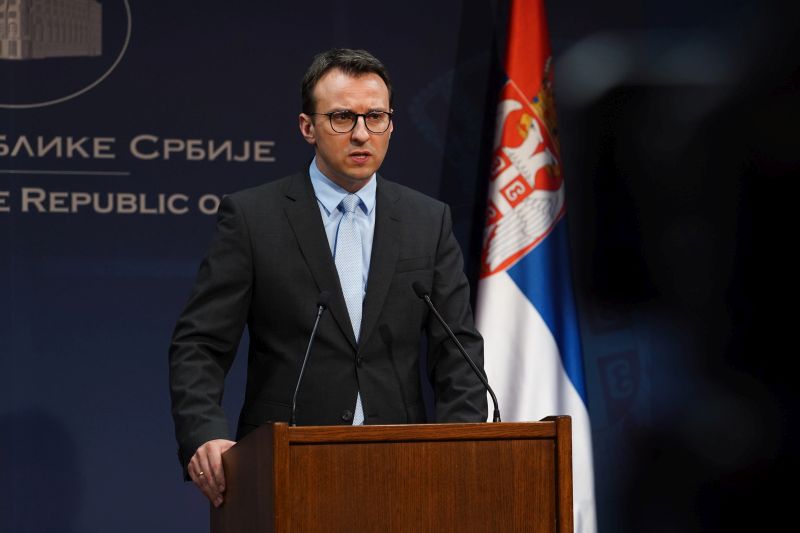 Belgrade, 27 May 2025
Belgrade, 27 May 2025“Kosovo police” raid premises of Leposavić Sports and Tourism Organisation
-
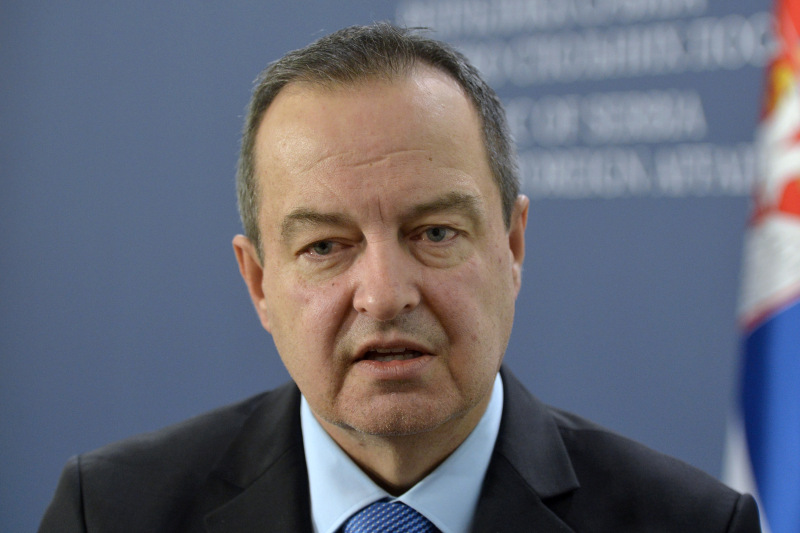 Belgrade, 24 May 2025
Belgrade, 24 May 2025Arrest warrant issued for attacker on Serbian high school graduate in North Mitrovica
-
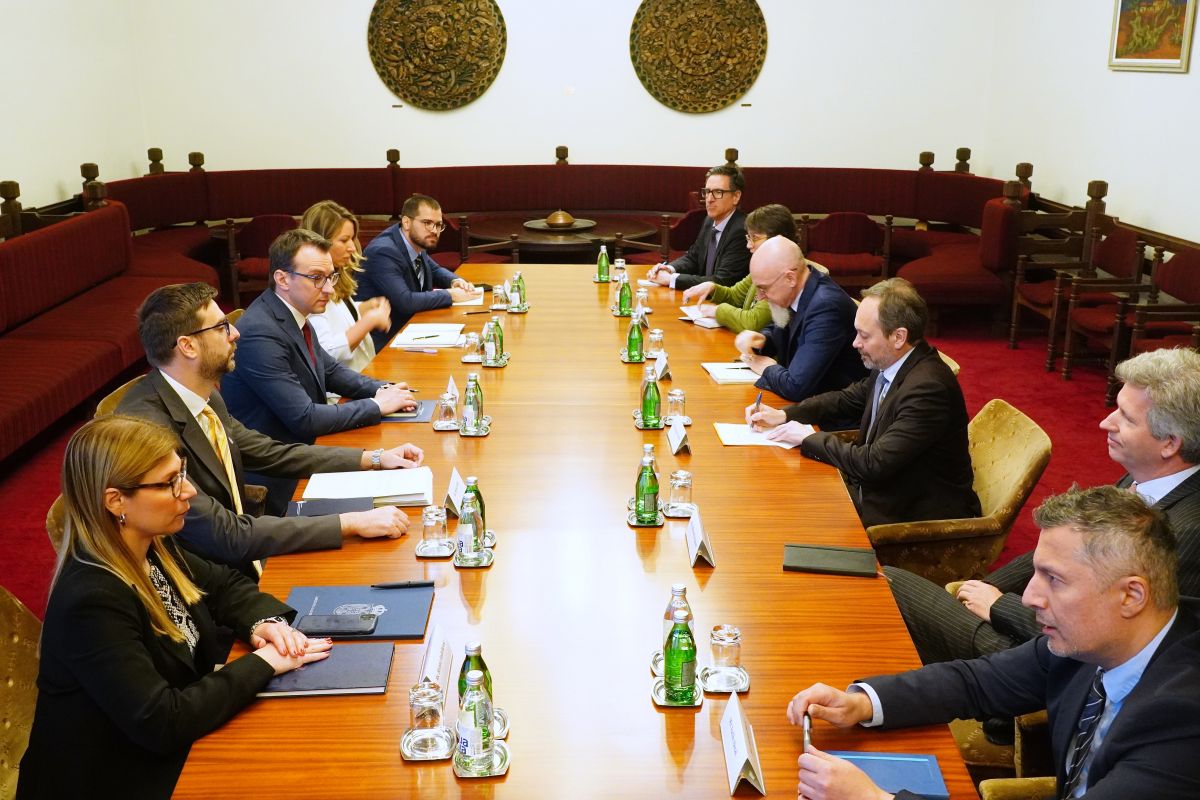 Belgrade, 15 May 2025
Belgrade, 15 May 2025De-escalation priority topic in dialogue with Priština

